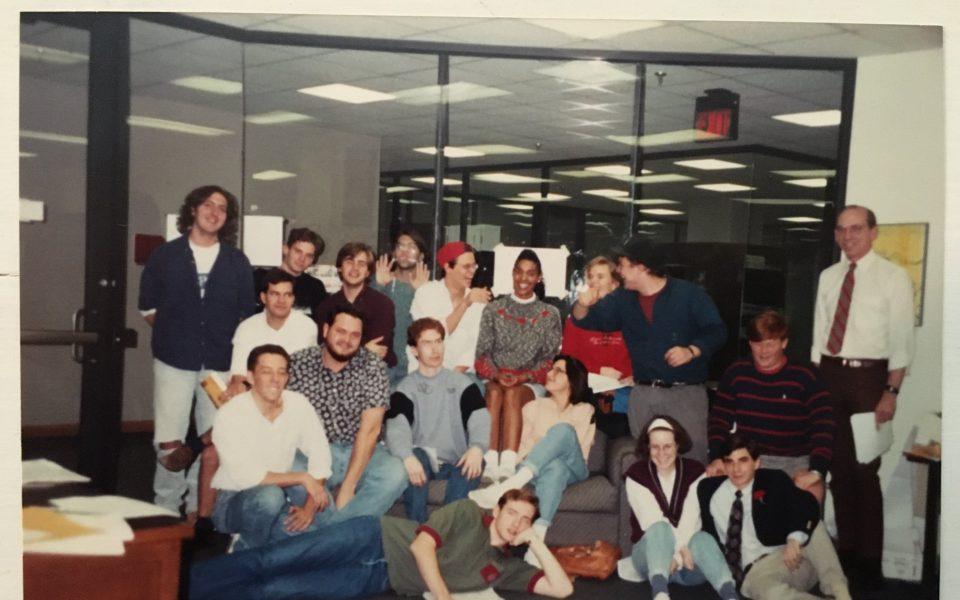
It wasn’t my first brush — that was in seventh grade, when affirmative action was trotted out as an evergreen debate subject, along with abortion, euthanasia and gun control. This was maybe 1982, right around the time the sports world was considering whether a Black man could quarterback an NFL team to the Super Bowl.
Back then affirmative action was something of an abstract in my mostly white hometown, where everyone went to college and most of us ended up in finance or law.
I had already chosen a career in journalism when I felt it firsthand.
As a senior in college, I saw a flier on the bulletin board at my college newspaper for a paid internship at the Sacramento Bee. Ignoring the “minorities and women encouraged to apply” note at the bottom, I assembled hard copies of some of my clips, printed off my résumé and put the thing in the mail, which is how we did it back then.
The call came a couple months later: An editor at the Bee had reviewed my clips and liked them. He wanted to offer me the job, he said, but they were intent on hiring someone who wasn’t me, a white kid from the suburbs with an endless list of advantages.
“I’m just calling to tell you that you’re a good writer and you should not give up,” he said, or something to that effect.
I had been in New Orleans for five years at this point, a far cry from the white suburbs of Long Island, the first time in my life I had actually lived, worked and played alongside Black folks. And even though Loyola had a lot of Black students, even though New Orleans media was as Black as everything else in the city, I can remember only one Black student who worked at the newspaper.
It made sense to me then, though not quite in the same way it does now, and so I shrugged it off and kept at it.
This week, when the US Supreme Court’s conservative majority hinted at ending the practice of affirmative action, I remembered that moment so vividly.
Then, I was honored that I even merited a personal phone call. I figured there would be plenty of other opportunities for me, and there were.
Now I understand more fully the importance of affirmative action, particularly in a media setting, where an effective organization must reflect the community it serves, but also in business, government, academia and every other industry.
Make no mistake: Black folks in general still get a pretty raw deal in this country; any American who claims not to see it is just willfully ignoring it. But the needle is moving, and affirmative action plays a part in it.
Thirty years later, I have seen affirmative action at work. There are way more Black folks with professional degrees, positions of power and high incomes in the US than there were when I was 23 years old. But we are nowhere near parity, which is why affirmative action is still not only necessary, but desirable.
Even today, there are thousands of guys like me working in the news industry: white, with a degree or two in the books and a knack for writing headlines. But there are still relatively few editors, publishers and others in positions of authority who do not look like me. And the results are the same as they’ve always been: news from the white, middle-class perspective, which is the same thing as propaganda.
Join the First Amendment Society, a membership that goes directly to funding TCB‘s newsroom.
We believe that reporting can save the world.
The TCB First Amendment Society recognizes the vital role of a free, unfettered press with a bundling of local experiences designed to build community, and unique engagements with our newsroom that will help you understand, and shape, local journalism’s critical role in uplifting the people in our cities.
All revenue goes directly into the newsroom as reporters’ salaries and freelance commissions.


Leave a Reply